
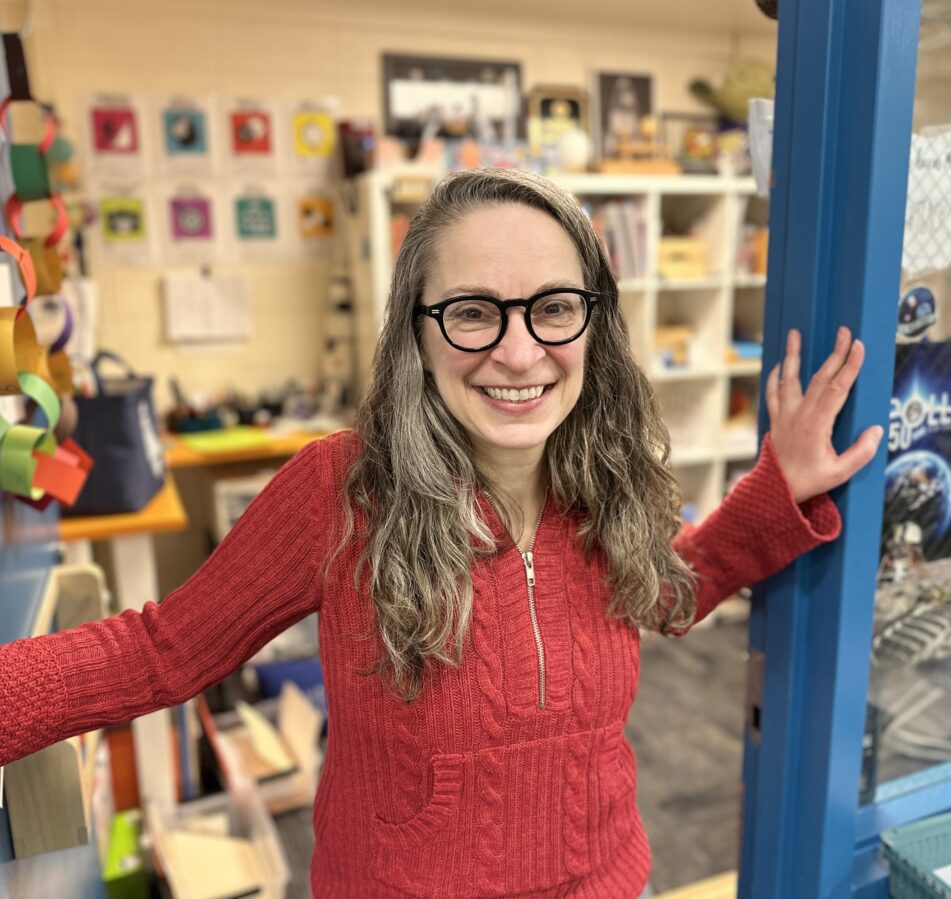
Logan Elementary math coach Natalie DePasquale was born in Chicago Heights, Illinois in 1969, the middle of three children, including an older sister, Julie, and younger brother, Jason, a teacher at A2Open. She has two daughters, Cassidy (Community High School, 2014; the University of Michigan environmental science, 2018) and Chloe (Skyline/Community HS, 2021; and the University of Michigan environmental engineering 2025).
She and her husband, Tyler Brubaker, live in Ann Arbor with the family cat, Amelie.
DePasquale has worked for AAPS for 25 years.
The math coaching position is a new position at Logan, explains Principal Will Wright.
“Coach Natalie has been building the program from the ground up,” he says. “She works tirelessly and is often the last one in the building every day preparing for the next day. In her time here, she has already built trusting and collaborative relationships with the Logan staff. Teachers seek her out for her expertise and advice on topics like instructional delivery, supporting individual students, and more. In addition to her coaching responsibilities, Natalie also works to support individual students. She builds excitement for learning math, and is helping kids achieve their full potential in math.”
AAPS Curriculum Coordinator for Elementary Math and Science Tony Stamm said the district is fortunate to have DePasquale on the team.
“Natalie is always willing to learn new things and grow in her mathematical understanding and leadership,” he said. “She engages with others and meets learners where they are. She values relationships and takes every chance to say yes.”
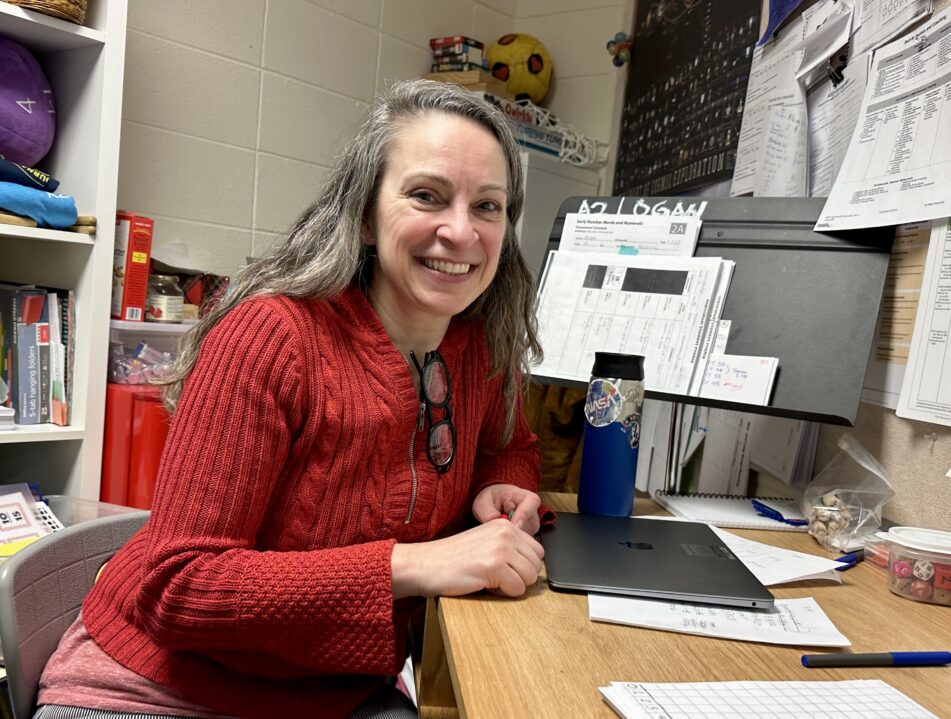
What inspired you to become a teacher?
While taking post-grad classes at the University of Michigan, I was invited to Angell Elementary School by the principal at the time, LeeAnn Dickinson-Kelley, to come to Angell and share some of my experiences from the fieldwork on the reservations and what I’d learned about the Ojibwa culture with the fifth grade students. I don’t remember much about what I said or did with the kids, though I remember we were in the auditorium— a room I’d come to be in 100s of times when I eventually taught there for 17 years.
Later that May, I had a call from D-K, as she was affectionately known. One of the teachers had fallen and broken her shoulder, and she was looking to me to be the guest teacher for the remainder of the school year. After many assurances that the other teachers on the team would do most of the heavy lifting, and the kids wouldn’t suffer for not having a proper teacher for the final five or six weeks, I said yes.
D-K had been right: The veteran teachers at Angell were awesome, the kids were amazing, and I was hooked. I eventually joined the second cohort of the new ELMAC program at the University of Michigan. When I finished, I hired into Angell to teach fifth grade.
Between my years at Angell and math coaching at Logan, I taught at Lawton for nearly six years. I’ve taught every grade from K through 5 in AAPS over the years, and that also helped ready me for math coaching. The community of staff and families at Lawton is fantastic! I’d be remiss to not mention how formative those years were in preparing me to be the coach I am today.
Where did you go to school? What is your career path? What was your very first job?
I did undergrad at Texas A & M University and graduate school at the University of Michigan here in Ann Arbor. In between, among other adventures, I had an incredible six-month internship with the Great Lakes Indian Fish and Wildlife Commission (GLIFWC)—essentially the DNR of 11-member Ojibwa bands across the northern midwestern states—through a graduate program in environmental ethics at Valparaiso University. I followed Native field biologists around the Northwoods of the Upper Peninsula, northern Wisconsin, and Minnesota with a notebook, graphing calculator, and a very heavy laptop that required a dedicated power source also be hauled around with it as we tracked local wildlife populations of bear, wolves, coyotes, deer, elk, and all kinds of fish. We took the raw data and estimated the total populations on tribal lands and ceded territories. GLIFWC uses this data to calculate sustainable total allowable catches, accountable for seven generations forward. I also got to write a regular column in GLIFWIC’s Public Information Office newsletters about my adventures in the field and attending cultural celebrations—powwows—with the team all summer and fall.
After the internship, I spent a year in Colorado climbing mountains, leading climbing groups, and occasionally rescuing lost tourists while working at a resort near Rocky Mountain National Park. I eventually moved to Ann Arbor to return to graduate school, where I’ve lived since 1995.
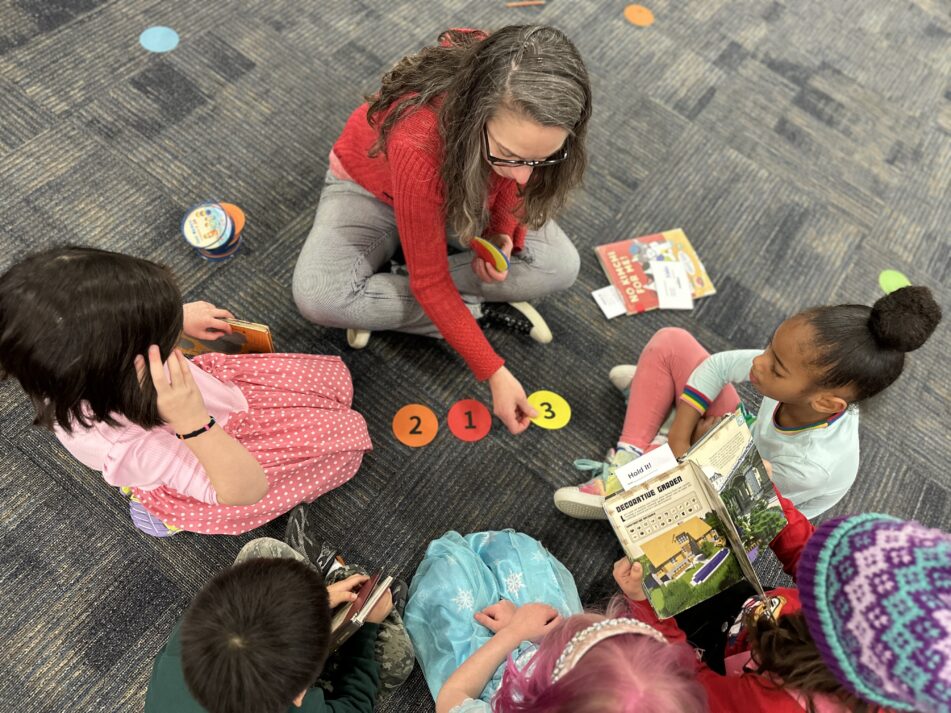
Math coaches became part of the AAPS instructional team last April, and you are now one of six coaches supporting seven buildings across the district. What’s the goal?
The goal is to support teachers with research-based assessments, pedagogy, and resources through a collaborative relationship with an experienced instructional coach as teachers focus on self-selected goals to improve their core tier 1 mathematics instruction. As students reach developmental stages of mathematical understanding at varying rates, teachers need to be able to differentiate their instruction of each grade level standard flexibly for every student—a tall order!
Coaches are there to support them as thinking partners, consultants, and co-planners in goal setting, unit/lesson planning, and teaching. Coaches also provide very targeted assessment and instruction to some individual students and small groups as Tier 2 intervention, working within the Multi-Tiered System of Supports (MTSS) framework.
Math coaches work with students in 1:1 intervention, we push into math classrooms to support small groups, and we work with teachers directly to help them improve their math teaching practice according to the goals they set for themselves.
We’re looking forward to growing our math coaching team in the years to come as funding is available.
What makes you well suited for the role, and how are you enjoying it?
When the role was first posted, a couple of colleagues teased that the job description was just lifted from my resume. Going back to the very early days at Angell, kind of in a panic that I was going to be in way over my head, I started saying yes to whatever training or knowledge anyone was willing to share—or was paid for by someone else—usually AAPS or WISD. I gravitated toward math, a subject I’d had a particularly rough go of as a kid myself.
During that first short stint at Angell as the long-term sub, a student in the class invited me to join a group of kids at lunch in the cafeteria to teach me a math game they played. I said yes, and they introduced me to the game Equations, a game played across the country in Academic Games leagues that host local, regional, state, and national tournaments. I lost the first shake, as a game is called, but thought I understood how it worked and challenged a rematch. I won, and the very precocious 11-year-old stood up, stretched his hand across the table to shake mine, and congratulated me on becoming their new coach! I would come to find that their current coach was about to graduate from U-M and move on to law school in Grand Rapids, and these kids were interviewing me to step in. I went on to coach the team for more than 15 years, racking up 10 state championship titles and a lifetime achievement award.
From the first year I was an official hire, I’ve been on the district’s curriculum development team in mathematics. It’s gone through various iterations, beginning with Advisory, but now known as the Curriculum Instruction Specialist (CIS), and it has been led by talented experts such as Michele Madden, Rose Marie Callahan, and now Tony Stamm. They have all mentored me and gotten me hooked into extensive coursework, training, book study groups, seminars, conferences, and mountains of opportunities to explore all facets of math education. I twice sat on a MEAP committee in Lansing to determine cut scores for math achievement, worked with the Ann Arbor Hands-On Museum as a teacher-advisor in developing more interactive math experiences, taught a graduate course in mathematics alongside a Umich math professor with funding from Intel, created and delivered math PD every year, and like the others, was also a Teaching and Learning Networks (TLN) facilitator.
All this is to say, I like math. I like sharing the language of the universe with kids and adults. After having had a kinda crummy early math education myself, I love helping other people see themselves for the math people they truly are. I have taken to heart the words of my favorite mathematician-educator, Dr Rah Shah, who says that when people realize that math is meant to serve the conversation, not the other way around—which is the way math has been taught for far too long—it suddenly becomes beautiful and accessible and joyful.
When you recall your first year of teaching, what memories stand out?
I remember that I was actually hired to team teach a 4th/5th-grade class. Angell had many multiyear/multi-age classrooms over the years and I had planned all summer with my partner teachers. Then, the night before the first day, it was determined that so many last-minute registrations were still coming in that the grade-level sections were affected to the point that my 4/5 was becoming a straight 5th, and the other teacher was going to have to manage at 4/5 split—something he did with great aplomb, genuine enthusiasm, and success.
What advice would you give to a first-year teacher?
Don’t hesitate to reach out for support. You and your students deserve it. I had so many great teachers to emulate and learn from in my early days at AAPS. They were so generous in sharing their expertise, time, and resources. Take the time to observe, ask questions, and seek advice from the teachers you hold in esteem. If you need math support, you can definitely reach out to me.
What’s the best compliment anyone could give you?
Someone once told me they were impressed that I speak fluent 8-year-old. That is, I break down complex concepts in ways kids can understand.
In your 25 years in AAPS, what’s the most important thing you’ve learned about teaching? About learning?
The most important things I’ve learned are to say yes and stay positive.
What’s the happiest part of your day?
Outside of waking up in the morning, my whole day is pretty happy. I like being at school, hanging out in math classes across the building, playing games, and supporting both students and teachers with new understandings of math. I love inspiring a smile.
Favorite websites:
I read three daily papers: The New York Times, The Washington Post, La Presse, a French language paper, plus Space.com. I spend a lot of time on a plethora of math websites for research: Early Math Essentials, NCTM, nrich, Achieve the Core, Advantage Math Recovery (AVMR), and Kentucky Center for Mathematics.
Apps you can’t live without:
- Google maps. I have no sense of direction.
- Sky Tonight and Aurora. For my telescope and to alert for potential aurora sightings. Wishful thinking!
- Adobe Scan for digitizing handwritten notes taken during assessments, planning, and reflections on student sessions
If you could know the definitive answer to any one question, what would that question be?
Existential: Something about the origins and composition of the universe(s).
Practical: Something about solving the problems of climate change and/or world poverty.
What do you love about working at Logan?
Logan’s international population; the CI classrooms—I’m learning so much from the kids and their teachers; the extended coaching team that also includes the Building Literacy Coach (formerly known as BLE, or Building Literacy Expert), Inclusion, EL, and Tech and our cohort learning series during staff meetings; the enthusiasm and support of the entire team for what I’m building here—especially Principal Will Wright, who has been incredibly supportive of the coaching model and giving me the resources and time to grow my learning in this new role. And finally, Logan’s location. It’s five minutes from my house!
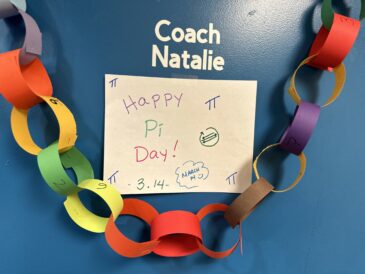
What’s most exciting about your professional life right now? Your personal life?
I’ve just completed a year-long specialist course in Add+VantageMR (AVMR) research, assessment, and pedagogy- it was transformative. The full immersion this past year in coursework and practicals informed much of my coaching, the Summer Learning Institute (SLI) math curriculum, and the professional development and study group courses I developed.
Also, coaching! It’s beyond exciting to have math coaches in the AAPS, and to actually be one of them! This is, after astronaut, the dream job. I get to think about math all day—finding ways to make it more engaging and meaningful for students and to support their awesome teachers in the further development of their practice.
Personally, I’m a newly empty nester. The littlest is just barely a mile away, though, and we see her often. It definitely worked out well to take on this new challenge now that my days as the VP of the robotics team, the team parent of the equestrian team, and the coach of the mathletes have come to an end. That frees me up to focus deeply on this new adventure. I’m super glad I said yes!
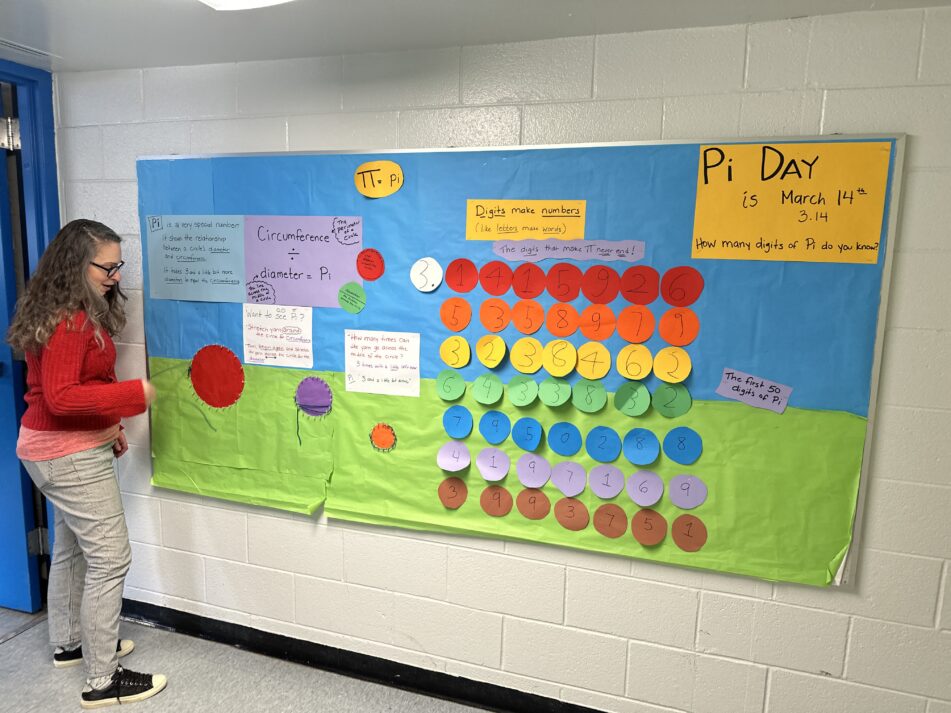
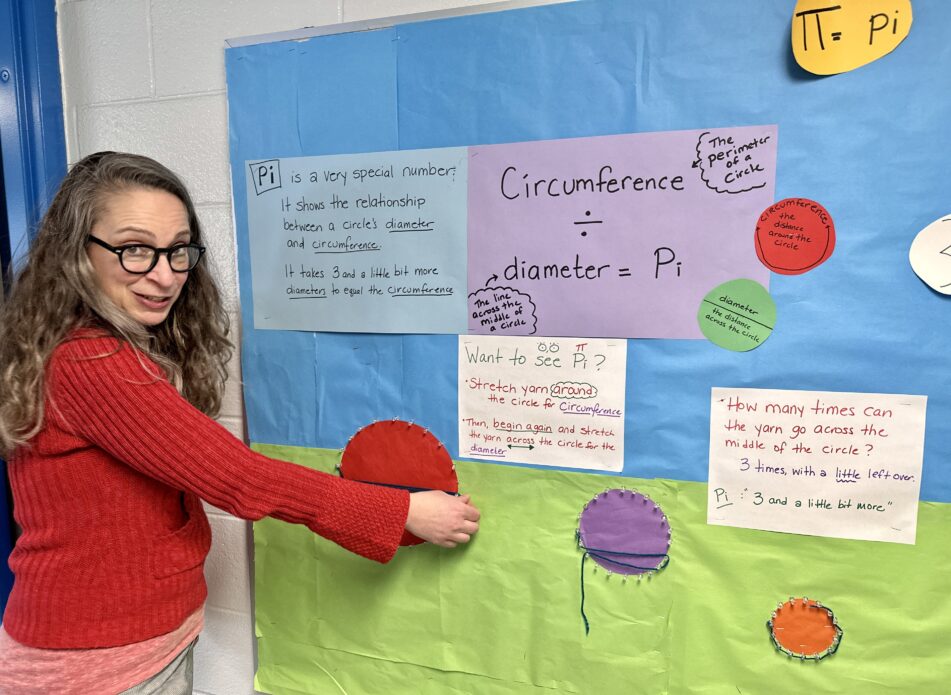

Be the first to comment